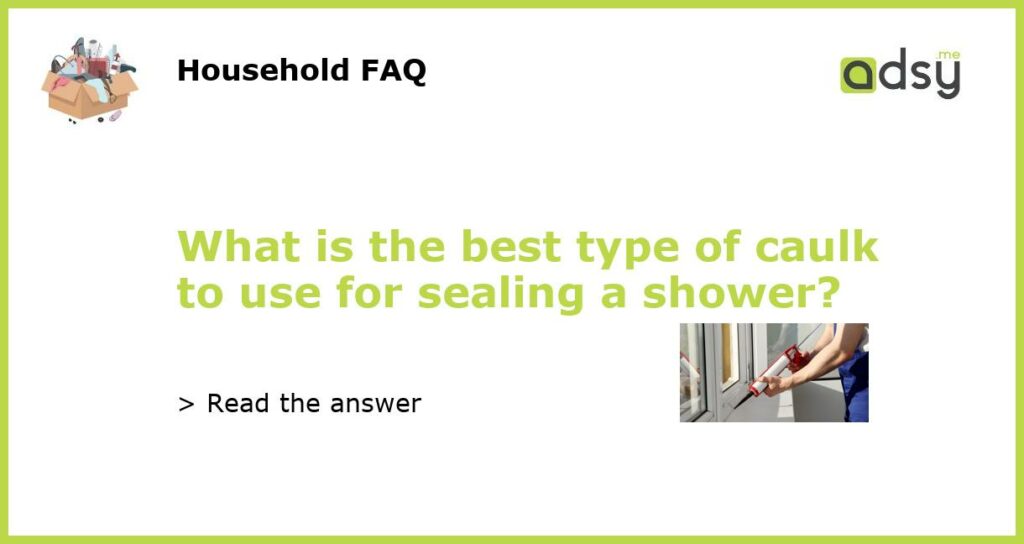Choosing the right type of caulk for sealing a shower
When it comes to sealing a shower, using the right type of caulk is essential. The caulk not only helps to prevent water from leaking, but it also helps to keep the shower looking clean and well-maintained. With so many different types of caulk available on the market, it can be challenging to know which one is the best for your shower. In this article, we will discuss the various types of caulk and their benefits to help you make an informed decision.
Silicone Caulk
Silicone caulk is one of the most popular options for sealing a shower due to its durability and flexibility. It is resistant to moisture, mold, and mildew, making it ideal for high-moisture areas such as showers. Silicone caulk also provides excellent adhesion to a variety of surfaces, including ceramic, porcelain, and glass. It is available in a range of colors to match your shower’s aesthetics and is relatively easy to apply and clean up.
Acrylic Caulk
Acrylic caulk is another common choice for sealing a shower. It is less expensive than silicone caulk and is also easy to apply and clean up. Acrylic caulk dries faster than silicone caulk and can be painted over if desired. However, it is not as flexible or durable as silicone caulk and may need to be replaced more frequently. Acrylic caulk is best suited for showers that do not experience excessive moisture or movement.
Hybrid Caulk
Hybrid caulk is a combination of silicone and acrylic caulk, offering the benefits of both types. It is more flexible than acrylic caulk and has better adhesion compared to silicone caulk. Hybrid caulk is also resistant to mold and mildew and can be applied to a variety of surfaces. It is a good option for showers that experience moderate moisture and movement.
Polyurethane Caulk
Polyurethane caulk is a durable and long-lasting option for sealing a shower. It provides excellent adhesion and is resistant to both moisture and movement. Polyurethane caulk is often used in commercial and industrial settings but can also be used in residential showers. However, it is more challenging to apply and clean up compared to other types of caulk and may require special tools. Polyurethane caulk is best suited for showers that experience heavy moisture and movement.
Butyl Rubber Caulk
Butyl rubber caulk is a waterproof and flexible option for sealing a shower. It offers good adhesion to a variety of surfaces and is resistant to moisture, mold, and mildew. Butyl rubber caulk is also easy to apply and clean up. However, it is less durable than silicone or polyurethane caulk and may need to be replaced more frequently. Butyl rubber caulk is suitable for showers that experience moderate moisture and movement.
In conclusion, choosing the right type of caulk for sealing a shower depends on several factors, including the level of moisture and movement in the shower, as well as personal preference and budget. Silicone caulk is the most popular option due to its durability, flexibility, and resistance to moisture. Acrylic caulk is a more affordable alternative, while hybrid caulk combines the benefits of silicone and acrylic. Polyurethane caulk is ideal for high-moisture and high-movement showers, while butyl rubber caulk is suitable for moderate moisture and movement. Consider these factors and choose the caulk that best meets your needs for a well-sealed and attractive shower.

